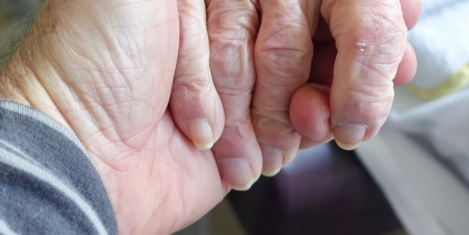To provide the best experiences, we use technologies like cookies to store and/or access device information. Consenting to these technologies will allow us to process data such as browsing behaviour or unique IDs on this site. Not consenting or withdrawing consent, may adversely affect certain features and functions.
The technical storage or access is strictly necessary for the legitimate purpose of enabling the use of a specific service explicitly requested by the subscriber or user, or for the sole purpose of carrying out the transmission of a communication over an electronic communications network.
The technical storage or access is necessary for the legitimate purpose of storing preferences that are not requested by the subscriber or user.
The technical storage or access that is used exclusively for statistical purposes.
The technical storage or access that is used exclusively for anonymous statistical purposes. Without a subpoena, voluntary compliance on the part of your Internet Service Provider, or additional records from a third party, information stored or retrieved for this purpose alone cannot usually be used to identify you.
The technical storage or access is required to create user profiles to send advertising, or to track the user on a website or across several websites for similar marketing purposes.
 Nearly half of UK workers admit to being greener at home than they are in the office, although more and more are realising the importance of green habits, research by Instant Offices has suggested. With the government committed to achieving net zero emissions by 2050, the workspace innovation company has been investigating what more employers can do to help to lead the way by instituting greener practices. More →
Nearly half of UK workers admit to being greener at home than they are in the office, although more and more are realising the importance of green habits, research by Instant Offices has suggested. With the government committed to achieving net zero emissions by 2050, the workspace innovation company has been investigating what more employers can do to help to lead the way by instituting greener practices. More →







 One in three US workers have told researchers nothing would stop them from taking advantage of flexible working options, despite the potential damage to their career. According to a
One in three US workers have told researchers nothing would stop them from taking advantage of flexible working options, despite the potential damage to their career. According to a 
 Today is the first productive day of the year for UK employees, according to new research which claims 38 working days were lost, on average, by each employee last year due to physical and mental health related absence and presenteeism. The study puts the cost to businesses and the economy of these lost days (which in reality are of course spread out across the whole year) at £91.9bn in 2019, an increase of more than £10bn on 2018.
Today is the first productive day of the year for UK employees, according to new research which claims 38 working days were lost, on average, by each employee last year due to physical and mental health related absence and presenteeism. The study puts the cost to businesses and the economy of these lost days (which in reality are of course spread out across the whole year) at £91.9bn in 2019, an increase of more than £10bn on 2018. 
 Each flexible coworking space created in a smaller town or suburban area reduces carbon emissions by an average of 118 tonnes a year thanks to shorter commutes, an international
Each flexible coworking space created in a smaller town or suburban area reduces carbon emissions by an average of 118 tonnes a year thanks to shorter commutes, an international 
 New research has been published aimed at understanding trends, practices and priority areas for improving employees’ experience and creating better places to work. The report,
New research has been published aimed at understanding trends, practices and priority areas for improving employees’ experience and creating better places to work. The report, 
 More than 40 percent of workers have a hidden health issue they’ve never disclosed to their employers, with younger employees the most likely to withhold information from their bosses, according to new research. A survey of 1,000 employees, carried out by healthcare provider
More than 40 percent of workers have a hidden health issue they’ve never disclosed to their employers, with younger employees the most likely to withhold information from their bosses, according to new research. A survey of 1,000 employees, carried out by healthcare provider 
 Over the last 12 months, seven in 10 UK business leaders witnessed presenteeism, where someone come into the office when they are unwell, a survey has claimed. The issue is particularly prevalent at certain times of the year, recruitment firm
Over the last 12 months, seven in 10 UK business leaders witnessed presenteeism, where someone come into the office when they are unwell, a survey has claimed. The issue is particularly prevalent at certain times of the year, recruitment firm 
 Some 47 percent of employees who care for both children and elderly relatives (sandwich carers) are keeping these responsibilities hidden from their employer, a survey from
Some 47 percent of employees who care for both children and elderly relatives (sandwich carers) are keeping these responsibilities hidden from their employer, a survey from 
 Three-quarters of UK employees who have experienced a mental health condition believe stigma around the issue has reduced over the past year but the vast majority would still not discuss their condition with their line managers, according to new research. Aviva’s “Health of the Workplace” report, released for Time to Talk Day, suggests that just 9 percent of employees who have had a mental health condition sought help from their line manager, 12 percent would discuss their condition with a work colleague and only 4 percent would talk to HR.
Three-quarters of UK employees who have experienced a mental health condition believe stigma around the issue has reduced over the past year but the vast majority would still not discuss their condition with their line managers, according to new research. Aviva’s “Health of the Workplace” report, released for Time to Talk Day, suggests that just 9 percent of employees who have had a mental health condition sought help from their line manager, 12 percent would discuss their condition with a work colleague and only 4 percent would talk to HR. 











February 27, 2020
The integration of people, place and policy will define the new workplace era
by Frances Gain • Comment, Wellbeing, Workplace design